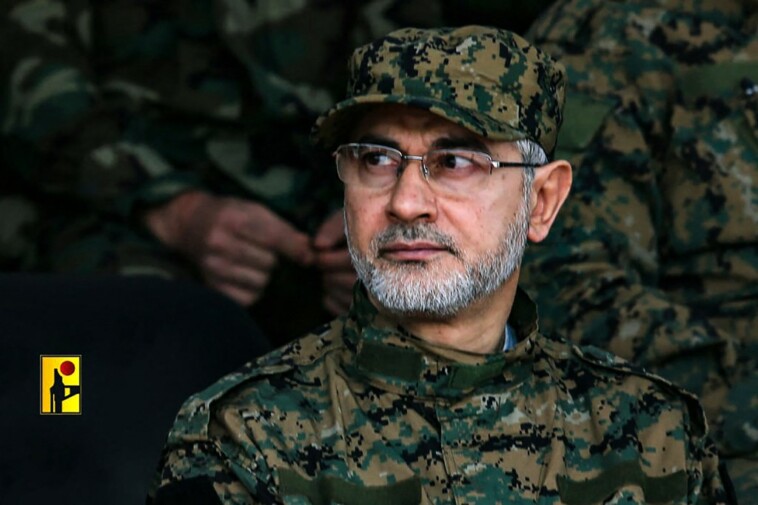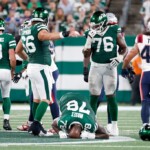A slew of senior leaders of Hezbollah’s elite fighting force were killed alongside top commander Ibrahim Aqil, in a rare airstrike Friday in Beirut as the longtime enemies inch closer to a full-blown war, military officials said.
The Israel Defense Forces said Saturday morning that the strike not only killed Aqil, the head of Hezbollah’s military operations and commander of its Radwan Force, but also eliminated 15 other senior commanders and members of the terror group who had gathered beneath a high rise apartment building in the Dahiya area of southern Beirut.
The terror group acknowledged that along with Aqil, Friday’s attack killed senior commander Abu Wahbi, whom the IDF identified as the head of the Radwan Force’s training unit and its former commander.
Along with Aqil, Wahbi had been plotting a murderous raid on communities of the Galilee region of northern Israel, reminiscent of Hamas’ bloody Oct. 7 attack, which sparked the ongoing war in Gaza, the IDF said.
Wahbi was involved in “advancing Hezbollah’s entrenchment in southern Lebanon, while attempting to improve the organization’s ground combat capabilities,” along with planning and executing numerous rocket fire and infiltration attacks on the Jewish state, according to the IDF.
The Israeli military named a dozen Radwan Force senior commanders killed in the air strike, who had been leading and planning the group’s “attack and infiltration plan into Israeli territory for years, to be executed when given the order,” officials said.
“Aqil and the commanders eliminated in the strike were responsible for planning, advancing, and executing hundreds of terrorist operations against Israel, including the planning of Hezbollah’s murderous scheme to raid the communities of the Galilee,” the IDF said.
Friday’s strike, which left a total of 37 dead, including three children and seven women, according to the Lebanese health ministry, came on the heels of a pair of stunning, long-planned attacks on the terror group by Israel’s Mossad intelligence and covert operations agency.
Earlier this week, thousands of pagers and walkie-talkies used by Hezbollah’s fighters that were rigged with explosives detonated across the country, killing at least 39 people and injuring more than 3,000 in two attacks.
Hezbollah chief Hassan Nasrallah on Thursday said Israel had orchestrated a “massacre” with the broad-scale attacks and that they effectively amounted to “a declaration of war.”
The attacks have escalated concerns among top US officials that Israel and Hezbollah could be nearing all-out war.
On Saturday, US National Security Adviser Jake Sullivan said he was concerned that the risk of escalating violence between Israel and Hezbollah was “acute” following the attacks in Lebanon.
“While the risk of escalation is real, we actually believe there is also a distinct avenue to getting to a cessation of hostilities and a durable solution that makes people on both sides of the border feel secure,” he told reporters in Wilmington, Delaware.
Sullivan, however, said that the death of Aqil, who orchestrated a trio of 1983 attacks targeting the US embassy and Marines Corps barracks in Beirut that killed more than 300, including over 250 Americans, brought justice to the terror group.
“Any time a terrorist who has murdered Americans is brought to justice, we believe that that is a good outcome,” he said.
Roughly 90 rockets were launched from Lebanon into Israel throughout Saturday amid the escalating cross-border tensions, the IDF said.
The Israeli forces, meanwhile, struck 180 Hezbollah targets and destroyed “thousands” of rocket launcher barrels that were ready to be used in attacks on the Jewish state, the IDF said.
Since Oct. 8, Hezbollah has been attacking Israel in solidarity with Hamas.
The Iran-backed terror group and the Jewish state have been engaged in near-daily missile strikes ever since, forcing tens of thousands of people in northern Israel and southern Lebanon to evacuate from their homes.
Separartely, in Gaza Saturday, an Israeli airstrike struck a former school the IDF called a Hamas command center, killing at least 22 people and wounding another 30.
Most of the casualties were women and children, according to the Hamas-run Gaza Health Ministry.
With Post wires






